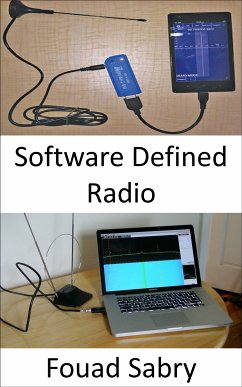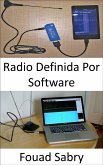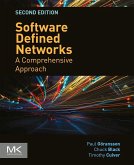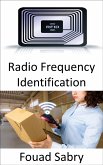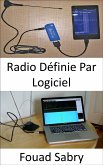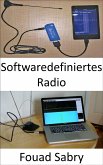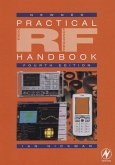What Is Software Defined Radio
A radio communication system known as software-defined radio (SDR) is one in which components that are typically implemented in hardware are, instead, implemented by means of software on a personal computer or embedded device. Historically, radio components have been implemented in hardware. Although software-defined radio is not a new idea, the constantly advancing capabilities of digital electronics have made it feasible to practically implement many procedures that were previously only conceivable in theory.
How You Will Benefit
(I) Insights, and validations about the following topics:
Chapter 1: Software-defined radio
Chapter 2: Amplitude modulation
Chapter 3: Modulation
Chapter 4: Orthogonal frequency-division multiplexing
Chapter 5: Baseband
Chapter 6: Frequency-shift keying
Chapter 7: Index of electronics articles
Chapter 8: Electromagnetic interference
Chapter 9: Mixed-signal integrated circuit
Chapter 10: Universal Software Radio Peripheral
Chapter 11: S meter
Chapter 12: Analogue electronics
Chapter 13: Direct-conversion receiver
Chapter 14: Radio receiver design
Chapter 15: Digital down converter
Chapter 16: OpenHPSDR
Chapter 17: Unified S-band
Chapter 18: List of software-defined radios
Chapter 19: Red Pitaya (hardware)
Chapter 20: RF CMOS
Chapter 21: List of amateur radio transceivers
(II) Answering the public top questions about software defined radio.
(III) Real world examples for the usage of software defined radio in many fields.
(IV) 17 appendices to explain, briefly, 266 emerging technologies in each industry to have 360-degree full understanding of software defined radio' technologies.
Who This Book Is For
Professionals, undergraduate and graduate students, enthusiasts, hobbyists, and those who want to go beyond basic knowledge or information for any kind of software defined radio.
A radio communication system known as software-defined radio (SDR) is one in which components that are typically implemented in hardware are, instead, implemented by means of software on a personal computer or embedded device. Historically, radio components have been implemented in hardware. Although software-defined radio is not a new idea, the constantly advancing capabilities of digital electronics have made it feasible to practically implement many procedures that were previously only conceivable in theory.
How You Will Benefit
(I) Insights, and validations about the following topics:
Chapter 1: Software-defined radio
Chapter 2: Amplitude modulation
Chapter 3: Modulation
Chapter 4: Orthogonal frequency-division multiplexing
Chapter 5: Baseband
Chapter 6: Frequency-shift keying
Chapter 7: Index of electronics articles
Chapter 8: Electromagnetic interference
Chapter 9: Mixed-signal integrated circuit
Chapter 10: Universal Software Radio Peripheral
Chapter 11: S meter
Chapter 12: Analogue electronics
Chapter 13: Direct-conversion receiver
Chapter 14: Radio receiver design
Chapter 15: Digital down converter
Chapter 16: OpenHPSDR
Chapter 17: Unified S-band
Chapter 18: List of software-defined radios
Chapter 19: Red Pitaya (hardware)
Chapter 20: RF CMOS
Chapter 21: List of amateur radio transceivers
(II) Answering the public top questions about software defined radio.
(III) Real world examples for the usage of software defined radio in many fields.
(IV) 17 appendices to explain, briefly, 266 emerging technologies in each industry to have 360-degree full understanding of software defined radio' technologies.
Who This Book Is For
Professionals, undergraduate and graduate students, enthusiasts, hobbyists, and those who want to go beyond basic knowledge or information for any kind of software defined radio.
Dieser Download kann aus rechtlichen Gründen nur mit Rechnungsadresse in A, B, BG, CY, CZ, D, DK, EW, E, FIN, F, GR, H, IRL, I, LT, L, LR, M, NL, PL, P, R, S, SLO, SK ausgeliefert werden.

